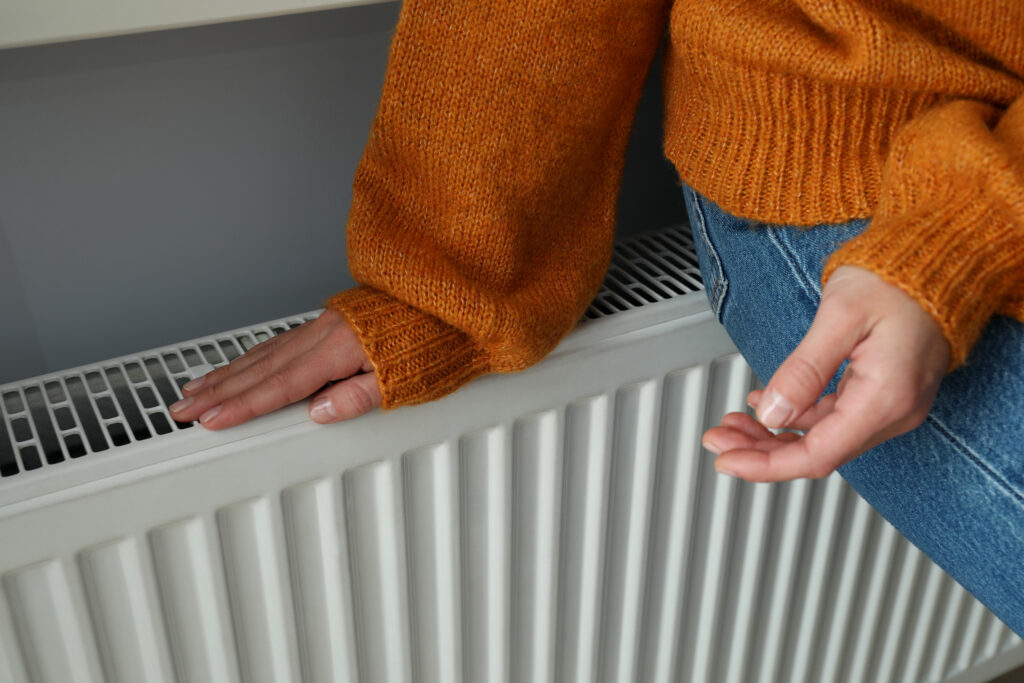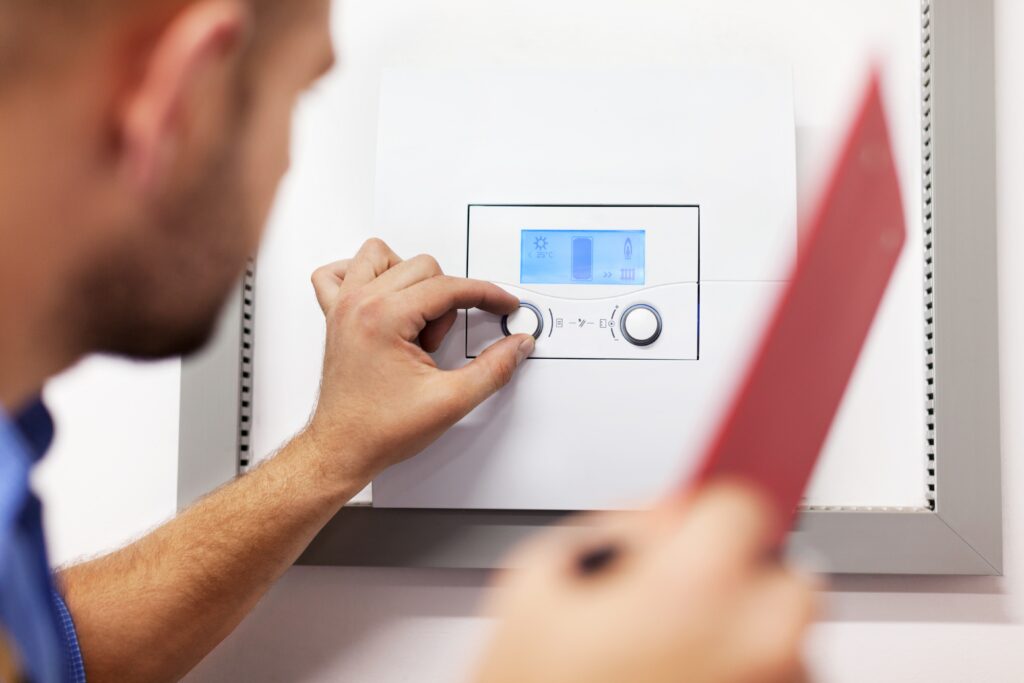Boiler Problems With Power Supply
A boiler losing power can be a frustrating and worrying issue, especially when you rely on it for heating and hot water. When your boiler is not turning on, it usually indicates an electrical fault, but the underlying cause can vary. Some problems are simple to fix, while others require the expertise of a professional. Understanding the potential reasons for a boiler not working due to no power can help you determine the next steps in resolving the issue.
Checking Your Home’s Electrical Supply
When a boiler has no power, the first thing to check is whether your home’s electrical supply is functioning correctly. If the lights and other appliances are also not working, the issue may be caused by a power outage or a problem with the electrical circuit rather than the boiler itself. In such cases, checking the consumer unit or fuse box can help determine whether a circuit breaker has tripped.
A power cut or a blown fuse in the electrical supply can prevent the boiler from turning on. If the circuit breaker has tripped, it can be reset by flipping the switch back to the ‘on’ position. However, if the breaker trips again immediately, it suggests an electrical fault that may need to be addressed by a qualified electrician.
Another factor to consider is whether the boiler control panel has no power due to a wiring issue. A loose connection in the wiring between the boiler and the mains supply can interrupt power, causing the boiler to stop working unexpectedly. If this is suspected, a heating engineer or electrician should be consulted.
Investigating the Boiler’s Fuse and Spur Switch
Boilers are usually connected to the mains electricity via a fused spur switch, which is a dedicated switch controlling the power supply to the boiler. This switch is typically found near the boiler, in an airing cupboard, or close to the kitchen fuse board. If the spur switch has been accidentally turned off, the boiler will not receive power. Ensuring the switch is in the ‘on’ position is a simple but crucial step in diagnosing the issue.
A boiler fuse within the spur switch can also blow, cutting off power to the boiler. Fuses are designed to protect electrical circuits from overloading and can blow due to power surges, age-related wear, or faulty components within the boiler. To check the fuse, the power should be turned off before carefully opening the fused spur cover. If the fuse appears discoloured or broken, it needs replacing with one of the correct rating, usually 3 amps.
If the new boiler fuse blows immediately after replacement, it indicates a deeper electrical problem. The issue could stem from a short circuit within the boiler or an electrical fault in the wiring. In such cases, professional assistance is necessary to identify and fix the fault safely.
Problems with the Residual Current Device (RCD)
A boiler losing power can also be caused by a tripped Residual Current Device (RCD). The RCD is a safety mechanism that automatically shuts off the electricity supply when it detects an imbalance in the current. If the RCD has tripped, it will cut power to the boiler and other connected appliances.
To check if the RCD has tripped, locate the main electrical consumer unit and look for any switches that are in the ‘off’ position. Resetting the RCD by flipping the switch back to ‘on’ may restore power to the boiler. However, if the RCD trips again soon after, it indicates an ongoing electrical fault that needs further investigation.
Some common causes of a tripped RCD include water leaks affecting the boiler’s wiring, power surges, or faulty internal components. If the boiler not working after a power cut is a recurring issue, it could be due to an RCD that is overly sensitive or faulty. An electrician may need to test the RCD and replace it if necessary.
Internal Boiler Issues That Can Cause Power Loss
If external electrical checks do not reveal the issue, the problem may lie within the boiler itself. Modern boilers contain an internal boiler fuse designed to protect sensitive components. If this fuse has blown, the boiler will not receive power, and it will not turn on. Unlike the fuse in the spur switch, an internal fuse should only be checked and replaced by a Gas Safe registered engineer.
Another common internal fault is a malfunctioning Printed Circuit Board (PCB). The PCB controls the boiler’s essential functions, such as ignition, water temperature regulation, and safety features. If the PCB fails, the boiler control panel may have no power, and the display may go completely blank. Some signs of PCB failure include flashing error codes, intermittent boiler operation, or an unresponsive control panel.
Replacing a faulty PCB can be expensive, and if the boiler is older, it may be more cost-effective to consider replacing the entire unit. Consulting a heating engineer can help determine whether a PCB repair or a full boiler replacement is the better option.
What to Do If Your Boiler Stops Working After a Power Cut
Experiencing a boiler not working after a power cut is a common issue, as some boilers require a manual reset when electricity is restored. This is particularly true for newer models that have built-in safety mechanisms designed to prevent damage from sudden power fluctuations.
The reset procedure varies depending on the boiler model, but in most cases, pressing and holding the reset button for a few seconds should restart the system. If the boiler does not respond, the heating control panel may have no power, or the settings may have been lost during the power cut. Checking the boiler’s instruction manual can provide guidance on how to restore the settings.
If the boiler is not turning on despite attempting a reset, it could indicate that an electrical surge caused damage to internal components. In such cases, professional assistance is recommended to diagnose and repair the issue.
FAQs
Why is there no power to my boiler?
A boiler not working due to no power can be caused by a tripped circuit breaker, a blown fuse in the fused spur switch, a faulty RCD, or an internal boiler fault. Checking your home’s electrical supply and ensuring the boiler’s power source is functioning correctly can help identify the cause. If the issue persists, a professional heating engineer should be consulted.
What should I do if my boiler is not turning on?
If your boiler is not turning on, first check whether other electrical appliances in the home are working. If they are, inspect the boiler fuse, the spur switch, and the consumer unit for any tripped circuit breakers. If power is reaching the boiler but it still will not start, it may require a reset or could have a faulty internal component.
Where is the boiler fuse located?
The boiler fuse is typically located within the fused spur switch near the boiler. Some boilers also contain an internal fuse, which is located within the boiler casing and should only be inspected by a Gas Safe engineer.
Does a boiler need electricity to work?
Yes, even gas boilers require electricity to function. The boiler’s ignition system, control panel, and pump all rely on an electrical power supply. If there is no power to the boiler control panel, the entire system will fail to operate.
Why is there no power to my heating control panel?
A heating control panel with no power can be due to a tripped RCD, a blown fuse, or a wiring issue. If the boiler control panel has no power following a power cut, it may need to be reset or reprogrammed.
Why is my boiler not working after a power cut?
Some boilers need to be manually reset after a power outage. If the boiler is not working after a power cut, check the control panel and refer to the manufacturer’s instructions on how to restart the system. If power surges damaged internal components, a heating engineer may need to inspect the boiler.






